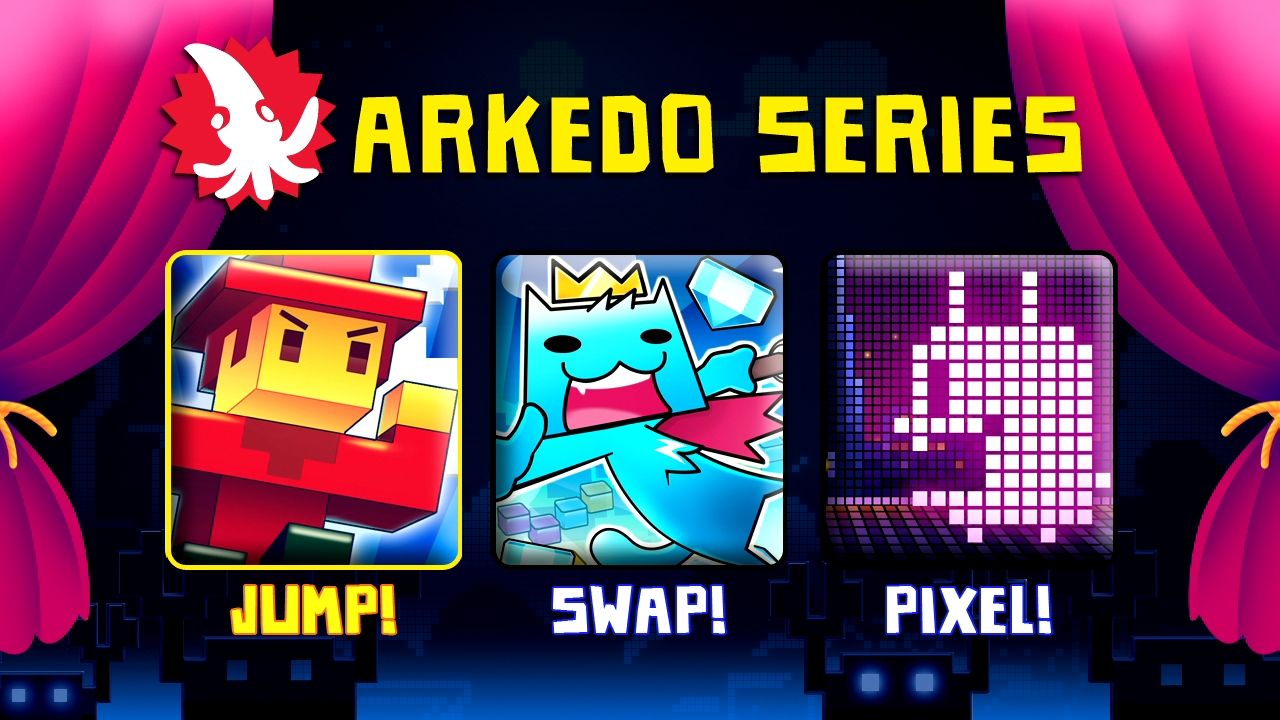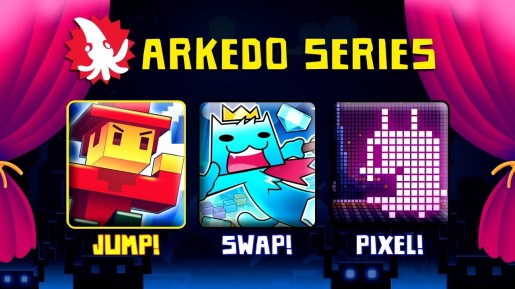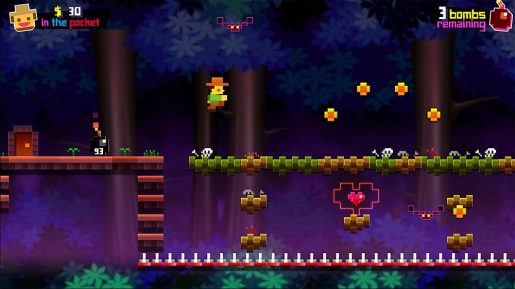Prior to making Hell Yeah!, which released late last month, Arkedo Studio actually made a number of different games. Among their most popular was a series of short and simple games released on the Xbox Live Arcade. The reason for their success was simple, they were just fun to play. While these games were fun a few years ago, can they hold up against the higher standards that exist today or were they better left in the past?
Lets find out what’s HOT and what’s NOT in our review of Arkedo Series.
HOT
Great Deal
Easily the best part of the Arkedo Series, is that you’re getting 3 fairly different games. The first game is Jump, which as the name suggests, is a very simple platformer. The main goal of Jump is to collect bombs without getting hit or falling to your death, which gets increasingly difficult over time. These range from a harsh trap, like falling platforms to timing out an enemies movement, so don’t be surprised if you can’t beat it on your first attempt.
The next game in the series is Swap, which is very similar to Zoo Keeper if you’ve played it. Now what’s interesting about Swap, is that there are two ways of playing. The first is the casual approach, which is just about clearing as many blocks as possible. This is a great method regardless of skill, since you can easily play the same game for 30 or more minutes. However, if you’re going for trophies or a high spot on the leaderboard, then you’ll want to try the advanced style. Unlike the casual approach, this method requires you to create chains by thinking of the drop patterns. So lets say you have 3 of one color in a row with the 4th ready to break it, you would do the opposite of another color (3 above, 1 below), which will cause a chain reaction. These are a MUST if you want to get a good score, since I can get more points with a 9x chain, than 20 minutes of just randomly clearing blocks. The only downside is that the game will speed up, so this could lead to an instant failure. Regardless, this is a great method if you stick to 3 – 4x chains over 7+ and offers you a lot of depth.
The final game is Pixel, which is very similar to Jump, but is closer to a traditional platformer. Unlike the other two, if you’ve played Mario or the like, then you’ve got a pretty good idea of what to expect from Pixel. However, don’t think that there isn’t anything unique to it either. Besides simply being a platformer, Pixel has a number of search and find mini games. The goal is to find an orange square and get to this point within the time limit. These get harder over time, since some have precise locations, low time or a conveyer belt, but they do offer you a different kind of challenge.



